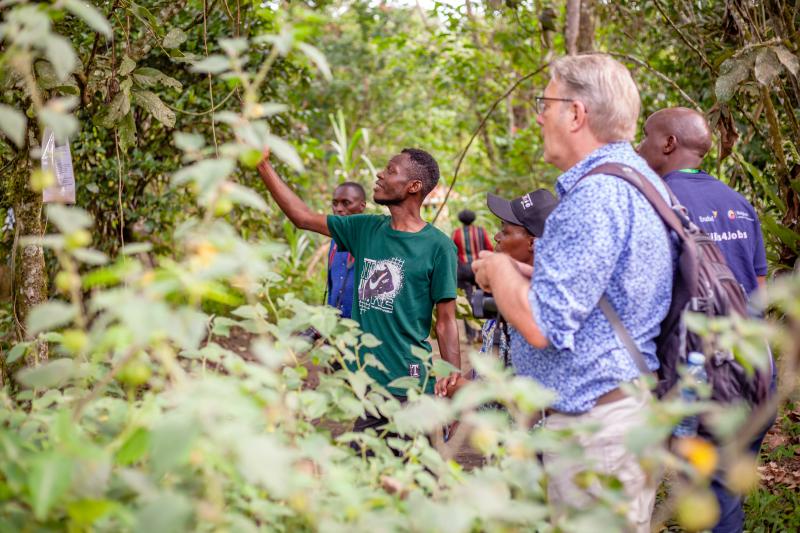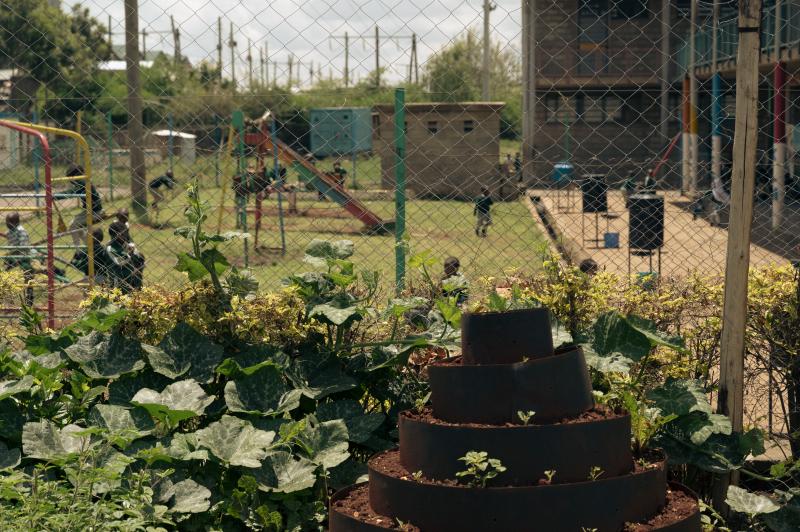Luke facilitates European-African cooperation for sustainable agri-food systems
Climate change, biodiversity loss, population growth and urbanisation are challenging food systems around the world, and particularly in Africa. The Natural Resources Institute Finland (Luke) is leading two international projects to develop ways to sustainably produce, process and consume nutritious, diverse and affordable food in Africa.
Although challenges like climate change, biodiversity loss, population growth and urbanisation are roughly the same in different areas, solutions cannot simply be transferred as such from one area to another. However, research and development expertise in food systems can. That's what Luke is doing with 35 European and African partners, in more than 20 locations across Africa in the HealthyFoodAfrica and SustInAfrica projects it leads.
"The challenges of agri-food systems extend from primary production to consumption, and in Africa challenges are particularly focused on primary production. Cultivation is not as efficient as it could be, and a lot of food waste occurs already at the beginning of the value chain," says Mila Sell, senior scientist at Luke, who leads the HealthyFoodAfrica project.
According to Sell, food waste can be tackled, for example, by improving food storage and drying, but also by developing new food products and marketing. At the same time, food products can be developed to be more nutritious.
Farmers, entrepreneurs and researchers in collaboration
The SustInAfrica project focuses on improving farming in 13 locations in five West and North African countries. Local small farmers as well as small and medium-sized companies participate in farming trials that use technology developed in Africa as well as in Europe.
"For example, in one of our trials local people can take pictures of their pest insects for our experts to identify. Our ultimate goal is to completely automate the identification of pests by using artificial intelligence,” tells Giles Young, Senior Scientist at Luke, who leads the SustInAfrica project.
To optimize irrigation, a European-African team of researchers utilizes the help of local drone entrepreneur, while a text message network used by Ghanaian farmers helps in collecting and disseminating research information.
“We connect farmers, entrepreneurs and researchers to each other during the project, creating systems that will be used in the future and continue to be of value to local people long after the project has finished," Young says. His main task in the project is to ensure that cooperation works and information flows between 11 countries and 16 partner organizations and that problems are solved quickly.
"If an exceptional drought or flood hits one of our trial fields, we have to find new ways to continue the project.”
Foresight methodologies and sustainability assessments
Smooth local and international cooperation is also at the core of the HealthyFoodAfrica project. The project focuses on ten sites located in six countries in Africa. In each of these sites, locally appropriate ways of producing, processing and consuming nutritious, environmentally friendly and affordable food are being researched and developed. The development work is carried out in collaboration with food system researchers and local actors.
Luke leads the project and ensures that locally developed solutions are shared with others.
"Urban farming, for example, is practised in both the crowded slums of Nairobi and the school gardens of Cotonou, but under very different conditions. Farmers have a lot to learn from each other, and research knowledge can be used to make farming more efficient," says Sell.
An essential approach in the project is foresight. Workshops using foresight methodology are organized in all food system labs, facilitated by Luke with years of experience both from Africa and elsewhere. Local partners, on the other hand, know how to engage key stakeholders, such as farmers and other food producers, in the work.
Luke is also responsible for life cycle assessment. "We carry out sustainability assessments that include a wide range of social sustainability aspects, such as the role of women. At the same time, we are exploring how social sustainability indicators could be developed," Sell tells.
A comprehensive view of the challenges and solutions
The goal of Luke and other scientific partners in both projects is to form a comprehensive understanding of the challenges and possible solutions to food systems and to disseminate information as widely as possible to areas where change is needed.
"In the African-European cooperation projects, we at Luke get to use our experience of how social, scientific and economic issues are interlinked," Sell says.
Sell and Young expect the projects to generate new local practices that will contribute to the sustainability of food systems. Sell expects product innovations as well.
"We have investigated in the HealthyFoodAfrica what could be grown instead of corn, for example, and even developed fast food meals from traditional plants. In Africa, there are traditional crops with very good storage life and nutritional values, but they are used less and less, especially in cities where fast food coming from countries such as South Africa is available."
The creation of a holistic picture and the practical research and development work in both projects contribute to the implementation of Africa-EU Partnership. The Partnership emphasises equal partnership and deepening relations between continents and countries - and this is exactly what the projects are doing.
Who's leading the project?
Who's leading the project?
Text by Marianna Salin



